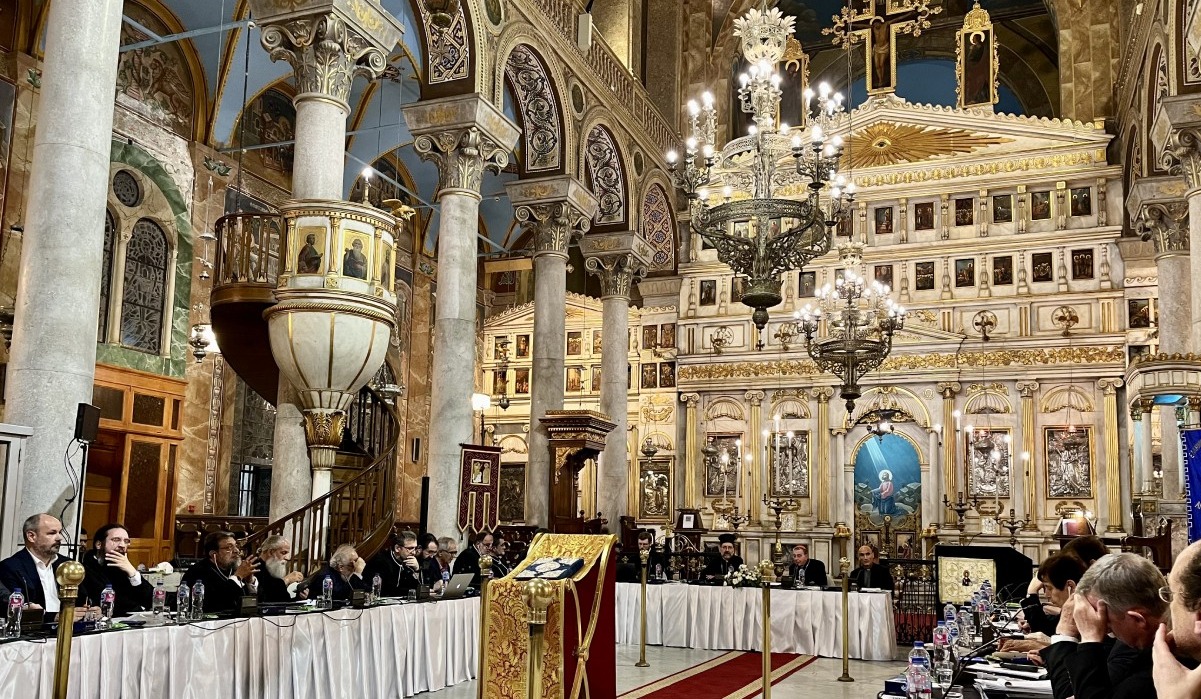

The School of Theology and Religious Studies’ Monsignor Paul McPartlan contributed to a significant Catholic-Orthodox agreed statement on the role of the pope and bishops over the past thousand years. He said this shared history of a difficult period in relations between Christian West and East is an important step in healing divisions.
“Catholics and Orthodox have had competing narratives about many things that happened in the second millennium, especially after the famous split between Rome and Constantinople in 1054,” said Monsignor McPartlan. The statement of the Joint International Commission for Theological Dialogue Between the Roman Catholic Church and the Orthodox Church was finalized at a plenary meeting in Alexandria, Egypt, between June 1-7.
“We want to try to purify the memory of our churches so as to strengthen our mutual love and respect. … That is our aim in this new agreement,” said Monsignor McPartlan.
The commission is one of the most significant of many bilateral ecumenical dialogues, or mutual efforts for developing unity and understanding among separated Christian churches. Monsignor McPartlan, Carl J. Peter Professor of Systematic Theology and Ecumenism, has served on the international commission since 2005. As a member of the coordinating committee and the drafting committee, he played an important role in crafting the recent statement.
“This new document gives us a welcome opportunity to explain ourselves to one another as we tell the story of the second millennium,” Monsignor McPartlan said. “It’s really quite a breakthrough.”
The authority of the pope, or papal primacy, as it relates to synodality — or the shared authority of all the bishops including the pope as bishop of Rome — has long been a source of contention in ecumenical dialogue. In recent years, the joint commission took on the tremendous task of creating a common narrative about the history of Christianity. The latest document, titled “Synodality and Primacy in the Second Millennium and Today,” follows a 2016 agreement on the history of the first millennium.
Monsignor McPartlan said the latest agreement should be understood within the wider context of synodality as the shared responsibility of all the faithful to contribute to the life of the Church.
“The fundamental thread we have identified as being in common between us is that the Church needs primacy at the local, regional, and universal levels. And that primacy always exists within the context of synodality,” he said.